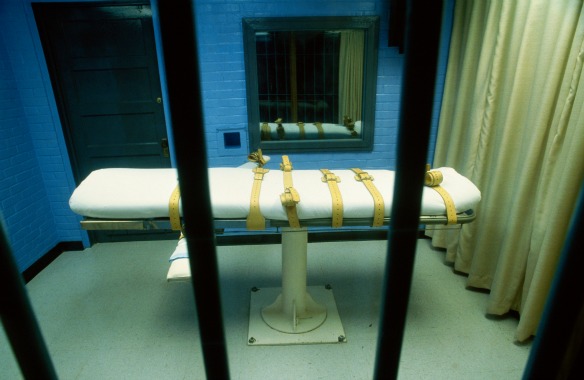
In his recent address before Congress, Pope Francis gave his support and encouragement to the call to abolish the death penalty in the United States. In offering papal support to end capital punishment before the representatives of the American people, the pope raised the hope that America, a beacon of freedom and justice in the world, would join the Western industrialized nations by banning the death penalty from its criminal justice system. As a son and native of Latin America, he is dismayed that the United States is the exception in all the Americas to use capital punishment, which today is unnecessary to protect its citizens.
Pope Francis’ opposition to the death penalty repeats the teaching of previous popes, especially John Paul II, who said the “cases in which the execution of an offender is an absolute necessity are very rare, if not practically non-existent.” In other words, the moral teaching of the Catholic Church is clear, and the death penalty is no longer justified as necessary since society can be safely protected through modern incarceration methods.
Will the pope’s remarks before Congress have any noticeable effect? In the short term, results may not be easily observable; nonetheless, I think they will have positive effects in growing a consensus of a humane moral vision that recognizes the interconnectedness and value of life in every human condition. Simply put, a coherent moral vision understands the inalienable dignity of human life and that it is unreasonable and wrong to support state-approved killing as a deterrent to killing.
The moral vision of Pope Francis will not be easily accepted in a culture that has from its national beginning embraced “an eye for an eye” approach to criminal justice. There are very encouraging signs that the opposition to the death penalty is growing, not only due to a coherent moral vision, but also to the experience of costly legal appeals and revelations about inept legal defenses, defective scientific analysis of blood or DNA, and the increasing conviction that innocent people have been executed despite official denials. Also, more and more people of good will, including those who are religiously motivated, have emerged to oppose the death penalty.
Nor can it be denied that in the long and shameful history of capital punishment in our country, its victims among African American and Hispanics, as well as the poor without proper legal defense, are in greater proportion than other population groups. This undeniable bias is in direct conflict with the moral vision of a just and fair criminal system.
Such a moral vision proposes a reform that eliminates not only racial bias, but also requires a competent and appropriate legal defense for all. Even with such a badly needed political reform, leadership is needed for the next logical step for the ethical value of every human life. As far as I know, there is no politician willing to campaign for public office on a platform to abolish capital punishment. Where states have abolished the death penalty there have been few elected politicians with the courage to lead this effort. Perhaps more politicians will reflect their constituents’ demand for a just alternative to killing a human life.
Capital punishment by lethal injections, which have been botched, causing pain and gruesome situations, should motivate politicians and their constituents to demand a ban of all state-sponsored executions. Some drug manufacturers have stopped selling lethal mixtures of drugs to avoid being complicit in this new but horrific form of death, which once was considered a clean antiseptic, non-offensive procedure. Rather than shopping around for a combination of drugs that will pass “the cruel and unjust punishment” standard, states with a moral vision of the dignity of human life should adopt other forms of punishment for capital crimes. This would conform to the reason Pope Francis offered his support to abolish the death penalty and his hope that the United States would not be the exception in the Americas to oppose it.
